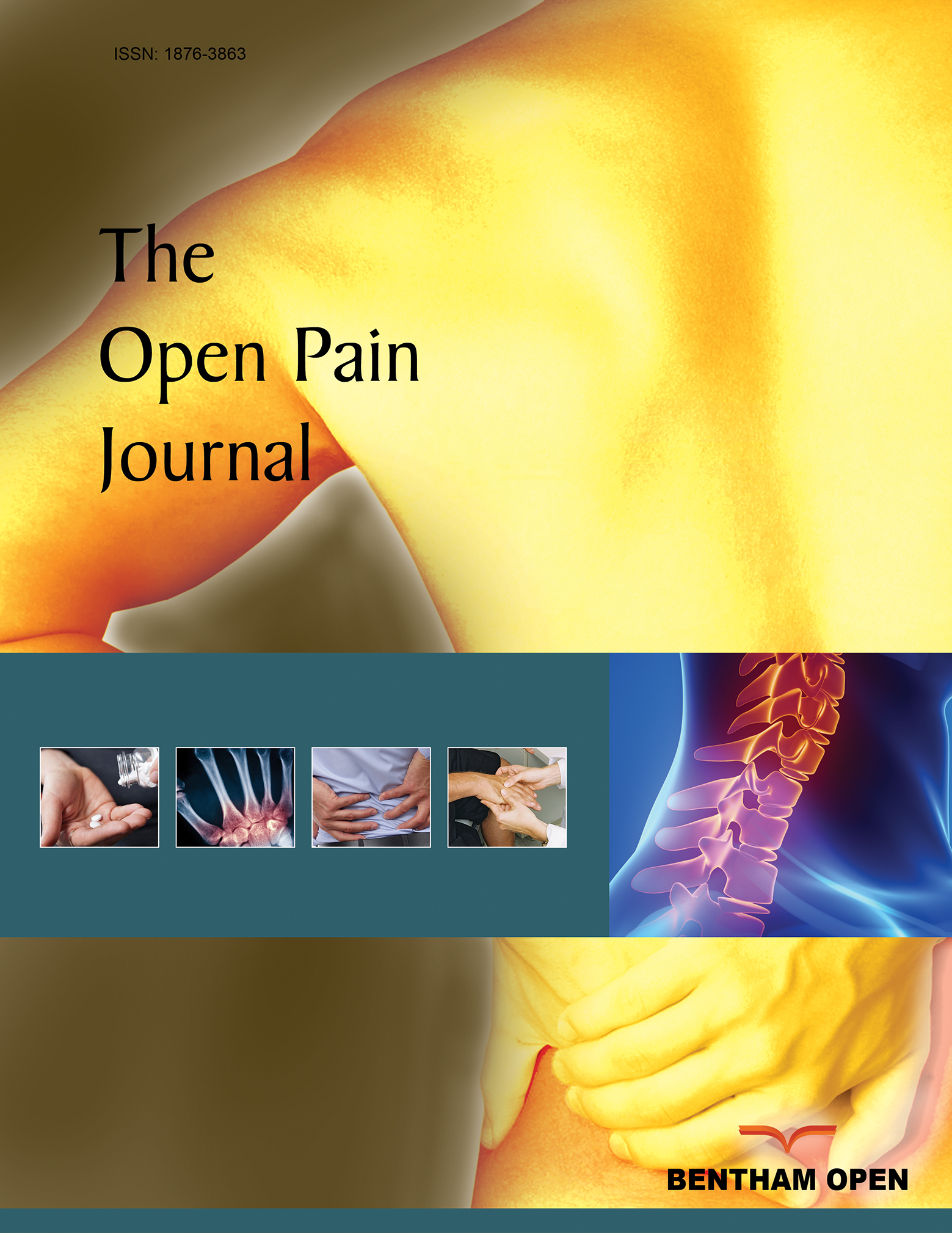All published articles of this journal are available on ScienceDirect.
Physiotherapy Interventions and the Outcomes for Complex Regional Pain Syndrome (CRPS) Type 1 on the South Island of New Zealand – A Longitudinal, Prospective Case Series
Abstract
Physiotherapy is considered in pain medicine to be a key element in the management of Complex Regional Pain Syndrome (CRPS). This is the first paper to document and categorise all physiotherapy intervention methods used as well as evaluate the outcomes of a case series of 18 CRPS patients attending physiotherapy in a prospective, longitudinal study across a region. Outcomes were measured across the region of the South Island of New Zealand over 1 year through independent telephonic interviewing of the pain experience with the McGill Pain Questionnaire-short form, function with Foot Function Index for the lower limb or Disability of the Arm Shoulder and Hand for the upper limb, and quality of life with the World Health Organisation Disability Schedule. Clinical records were accessed for each CRPS participant following discharge from physiotherapy to categorise the intervention methods used. Seventeen participants received intervention for both functional restoration with pain modulation and only one participant received functional restoration with no pain modulation; 12 also received immobilisation with 10 receiving passive interventions. All outcome measures improved significantly by 6 months and were maintained at 1 year. Eighty five percent had their diagnosis of CRPS confirmed within 3 months of their injury; half had fracture as the precipitating injury for their onset of CRPS with a third following soft tissue injury and 11% following surgery. Physiotherapists showed a high variation with the intervention methods used and showed a greater proportion of intervention methods focusing on functional restoration followed by pain modulating interventions. Future research is necessary to define what physiotherapy interventions are efficacious in the management of CRPS.


